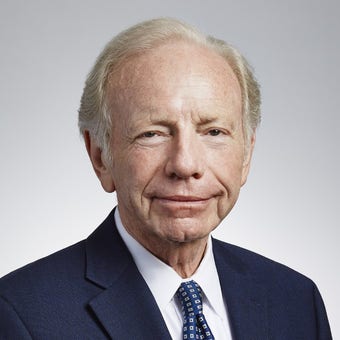Joe Lieberman slams Biden’s botched Afghanistan exit: ‘Tragic and totally unnecessary’
Former Democrat VP candidate Joe Lieberman warns ‘we’re all going to pay’ for the president’s U.S. withdrawal on ‘The Brian Kilmeade Show.’
Reading the many analyses of America’s withdrawal from Afghanistan one year ago this month took me back 20 years earlier to Sept. 11, 2001, another day of infamy and slaughter of Americans. This one originated in al Qaeda headquarters in Afghanistan under the protection of its extremist Taliban government.
In Congress, there was a near unanimous bipartisan response that we had a moral obligation to the Americans who had been killed on 9-11 to strike back at al Qaeda and the Taliban. We passed a resolution authorizing the use of military force which was soon carried out by our troops with patriotism, courage and success. The Taliban was overthrown and al Qaeda was forced to run from Afghanistan and go underground.
In early February 2002, John McCain and I led a delegation of nine senators to Afghanistan, the first to visit after the war. Our plane landed at Bagram Air Base, which had been left in ruins by the Taliban.
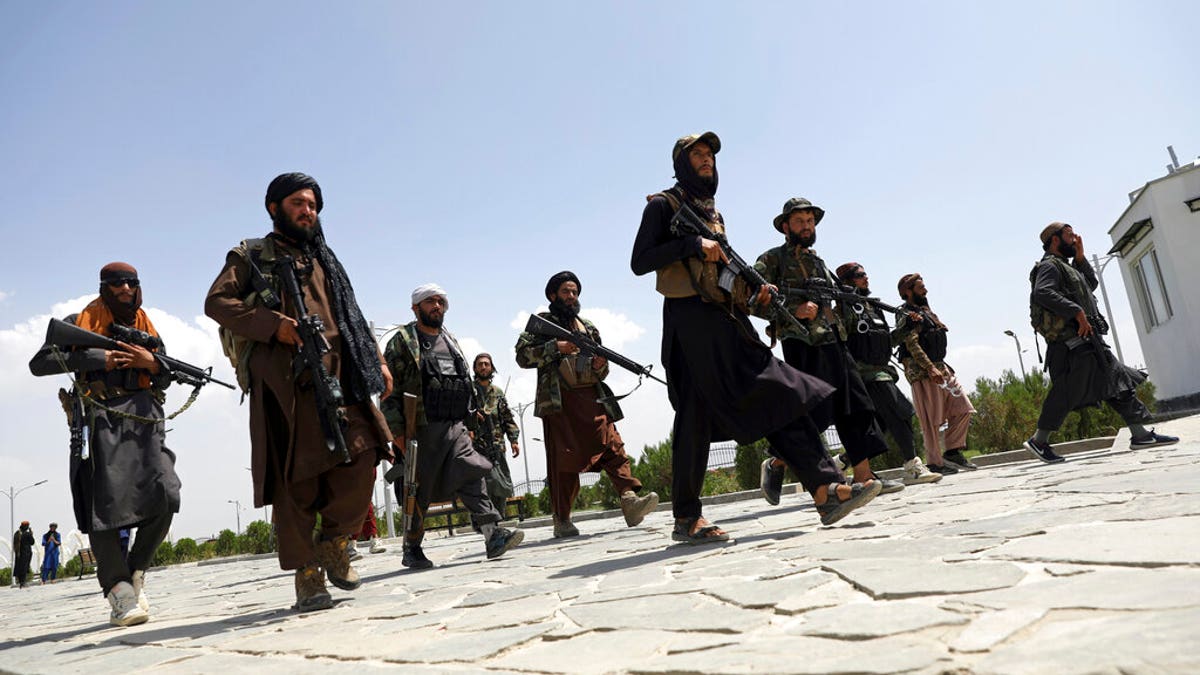
Taliban fighters patrol in Kabul, Afghanistan on Aug. 19, 2021. (AP Photo/Rahmat Gul, File)
Because of security concerns, we were not allowed to drive to Kabul. Instead, the new president of Afghanistan, Hamid Karzai, and his cabinet rode out from the capital city to meet us in a tent that had been put up at Bagram. We were all impressed by Karzai that night. He was smart and eloquent, and looked like a much better leader than we had reason to believe would emerge from the chaos there.
During the years after, Karzai lost some of his glow for many members of Congress, but the fact is that he and his able successor, Ashraf Ghani, presided over revolutionary reforms in Afghan society, beginning with real elections of the presidents and members of the Parliament. Together, they re-established the rule of law, opened Afghanistan to free speech and a free press, liberated women and girls from the primitive bondage the Taliban had put them into, and stimulated economic growth and opportunity.
The Taliban soon began a guerrilla war against the new government, a war that ebbed and flowed, as most wars do, but the Afghan military, supported by the U.S. and NATO, eventually did well enough to enable the U.S. to begin to draw American troops down from the high of 110,000 in 2011.
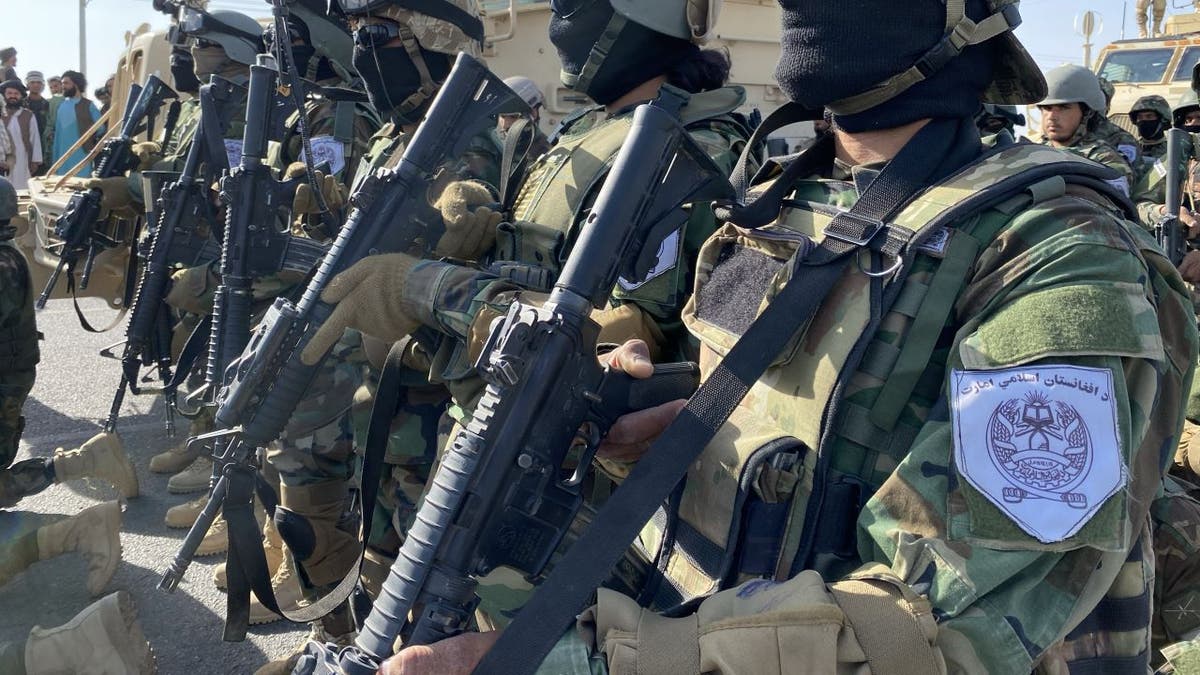
Taliban forces hold a military parade with equipment captured from the U.S. Army in Kandahar, Afghanistan, on Nov. 8, 2021. (Murteza Khaliqi/Anadolu Agency via Getty Images)
President Obama announced that he planned to withdraw all our forces from Afghanistan by the end of his term, but eventually revised that decision based on advice from the U.S. military and intelligence agencies that the Afghan government and military would collapse and the Taliban would return to power if we withdrew.
However, because the Afghan military continued to fight valiantly and successfully President Obama was able to reduce the number of our troops there all the way down to 8,800 at the end of his administration. He also limited the U.S. mission to regional counter-terrorism, which was consistent with the reason Congress authorized the war in 2001.
BIDEN OWES US ANSWERS FOR FAILURES IN AFGHANISTAN
After that, our troops were no longer actually at war in Afghanistan.
Our next president, Donald Trump, entered into peace negotiations with the Taliban at Doha in Qatar and eventually cut our troop level down to 5,000. After President Biden was elected, he continued the Doha negotiations with the Taliban, and reduced our troop presence to 2,500 with the same limited counter-terrorism mission. He also said he would withdraw all our troops by September 2021.
A majority of the American people, when asked by pollsters then, said they wanted our troops out of America’s "longest war" but they were mistaken about the basic facts. Our 2,500 troops in Afghanistan were no more at war than the tens of thousands of American troops who are still in Germany, Japan and Korea. No rational person would argue that World War II and the Korean War are still being fought. Our troops have remained in those countries for regional stability and security, which was also the purpose of the counter-terrorism mission of our troops in Afghanistan.
Nevertheless, the Biden administration concluded the negotiations in Doha with a peace agreement with the Taliban that was worth as much as Chamberlain’s agreement with Hitler. It was, as then, an act of treachery by the Taliban and self-delusion by the West. But it was used as a very false basis for the U.S. withdrawal from Afghanistan.
After the mortifying exit last August, the Afghan government and military collapsed and the Taliban took back control of the country, just as so many in our military and intelligence agencies had warned Presidents Obama, Trump and Biden would happen.
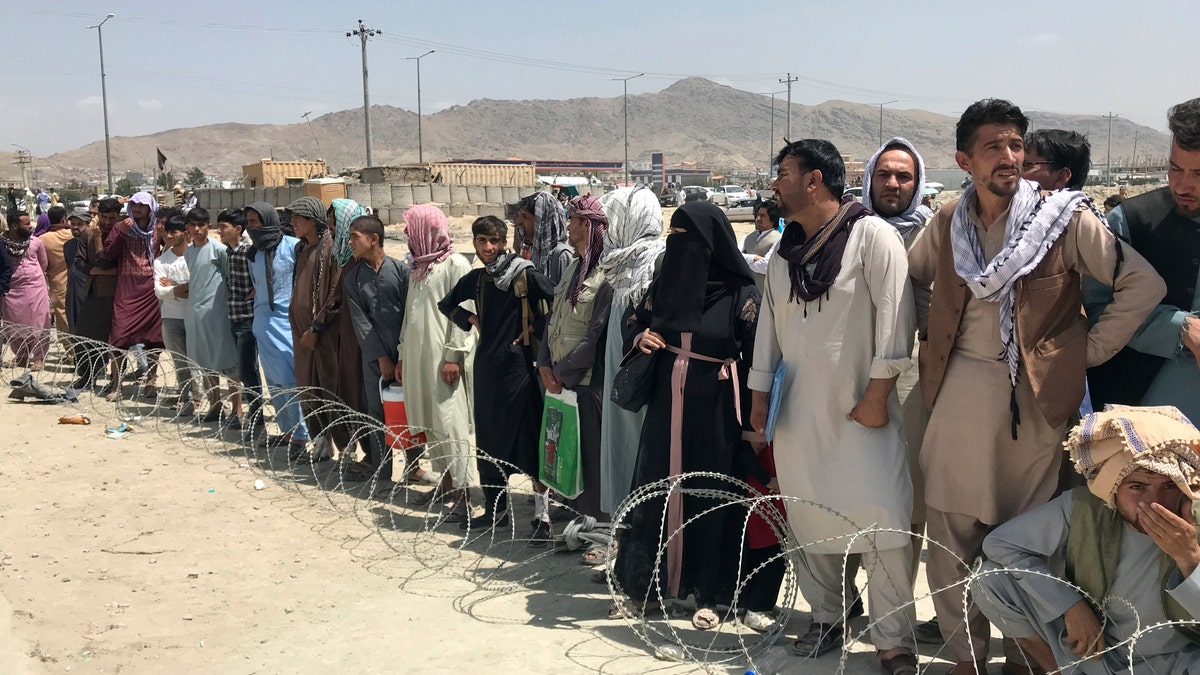
Hundreds of people gather outside the international airport in Kabul, Afghanistan, Aug. 17, 2021. (AP Photo)
The incompetent, chaotic and deadly way the American withdrawal was carried out only deepened the consequences of the mistaken decision to retreat from Afghanistan. That conclusion seems even more clear and undeniable now than it did a year ago.
Looking back, what was gained and lost by America’s withdrawal? What was gained was that we have no more American military in Afghanistan who, though not at war, were there to carry out counter-terrorism missions which, of course, can be dangerous. However, there were very few American casualties after our troops reduced their mission. And we are not spending as much money in Afghanistan now, but we may soon be giving them billions in humanitarian relief because of the absolute inability of the Taliban government to govern effectively and the resulting humanitarian crisis there.
As I see it, that is all we gained from the withdrawal.
What was lost? Plenty.
The biggest losers were the Afghan people who have lost their freedom, economic opportunity and lives under the Taliban. Women and girls have once again been forced into not just inequality, but bondage, without freedom, opportunity or education. And, according to the U.N., half of the Afghan people now face acute hunger under the Taliban.
America and the American people also lost a lot, beginning with our pride and self-confidence as a result of the globally embarrassing way the withdrawal was carried out. That, and the underlying decision to withdraw, shook the confidence of our allies, and emboldened our enemies throughout the world because they all doubted that the U.S. could be depended on any more over the long haul.
When you are a global superpower as the U.S. is, everyone watches what you to do in one part of the world to decide how you will behave in their part of the world.
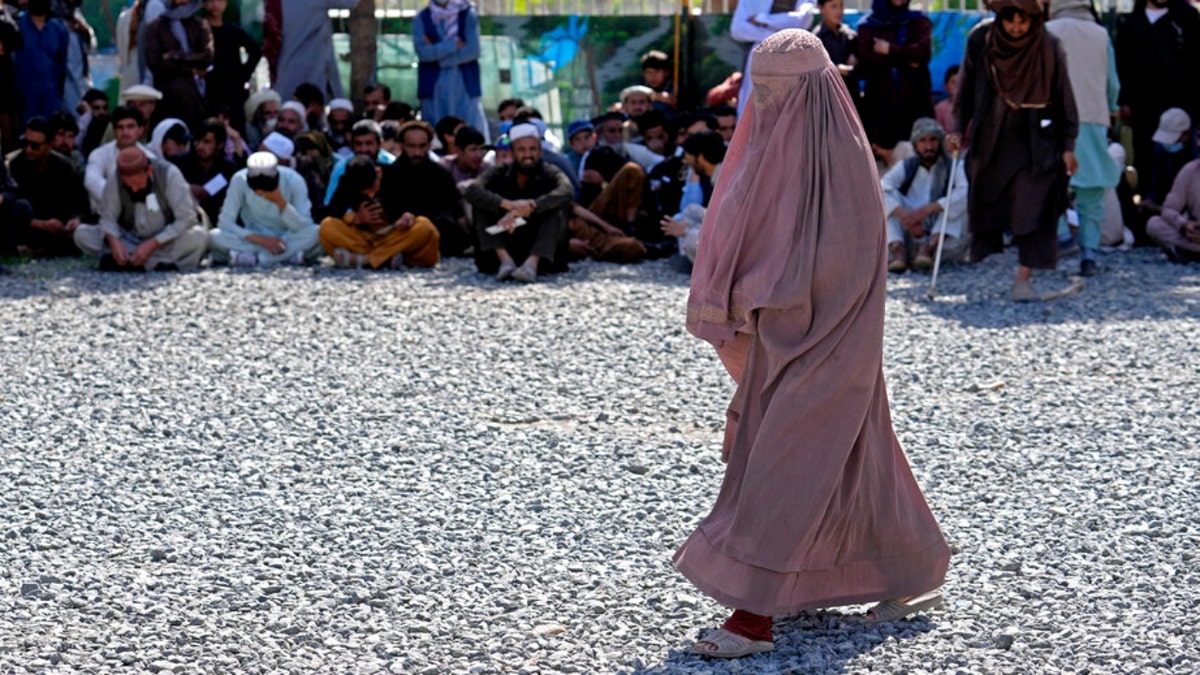
An Afghan woman waits to receive food rations distributed by a Saudi humanitarian aid group, in Kabul, Afghanistan, April 25, 2022. (AP Photo/Ebrahim Noroozi)
Our decision to leave Afghanistan and the chaotic way it was carried out raised questions about whether the U.S. wanted to remain a global power, whether its people had the patience to support such international leadership, and whether its government was still the functional, capable force it had long been.
In the case of the U.S., asking these questions had profound implications because we are not just another country. In the eight decades since the end of the Second World War, we have been the irreplaceable foundation of an international order that encouraged and enabled so much security, prosperity and freedom throughout the world. That foundation was shaken by our retreat from Afghanistan.
It is hard to prove but quite logical to assume that our exit from Afghanistan was one of the reasons Putin invaded Ukraine, Xi expanded his military, economic and diplomatic aggressiveness throughout Asia and elsewhere, and Iran has consistently thumbed its nose at us in the ongoing, pathetic nuclear negotiations as well as their support of terrorism, aggression throughout the Middle East, and outrageous attempts to kill American leaders and citizens on American soil.
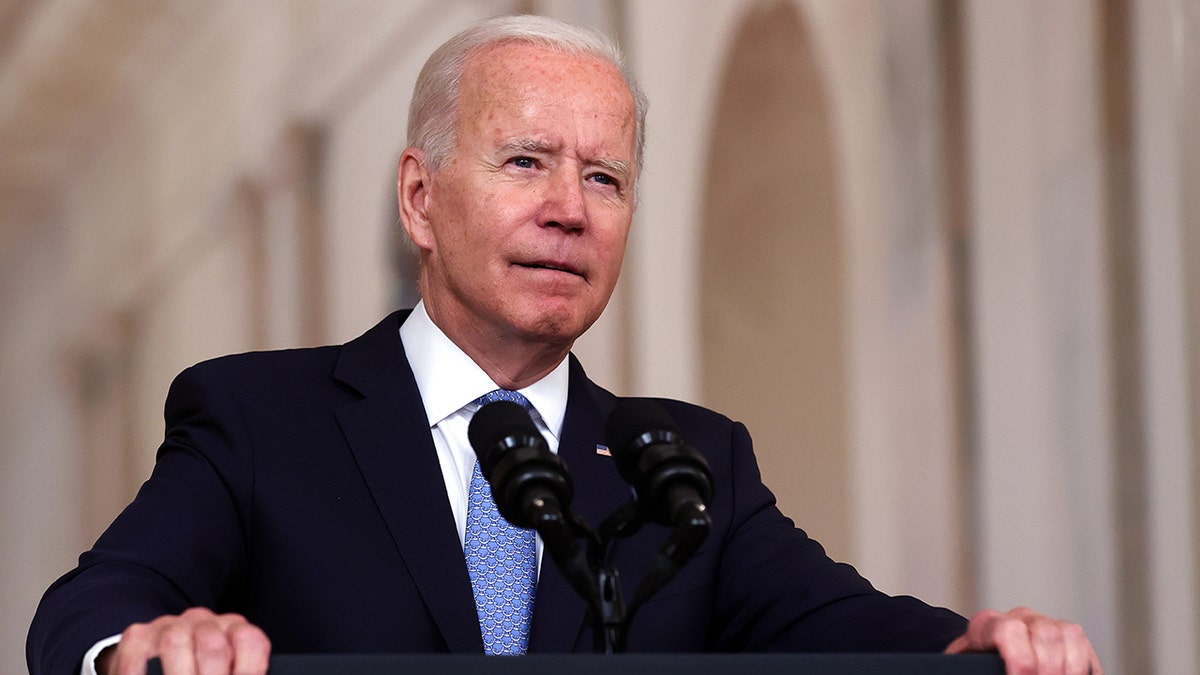
President Biden delivers remarks on the end of the war in Afghanistan, at the White House, Aug. 31, 2021. (Chip Somodevilla/Getty Images)
Our enemies simply don’t fear us as much as they should. Perhaps that reality is one reason the Biden administration has given strong support to Ukraine and Taiwan, more than many expected. It is a hopeful sign of lessons learned from the disastrous withdrawal from Afghanistan.
CLICK HERE TO GET THE OPINION NEWSLETTER
Another important sign of lessons learned from Afghanistan would be for the U.S. to end the negotiations for a new nuclear weapons agreement with Iran. Any agreement that emerges from these talks will mean as little to Iran as the Doha agreement meant to the Taliban.
There is another lesson that our elected leaders and the American people need to learn.
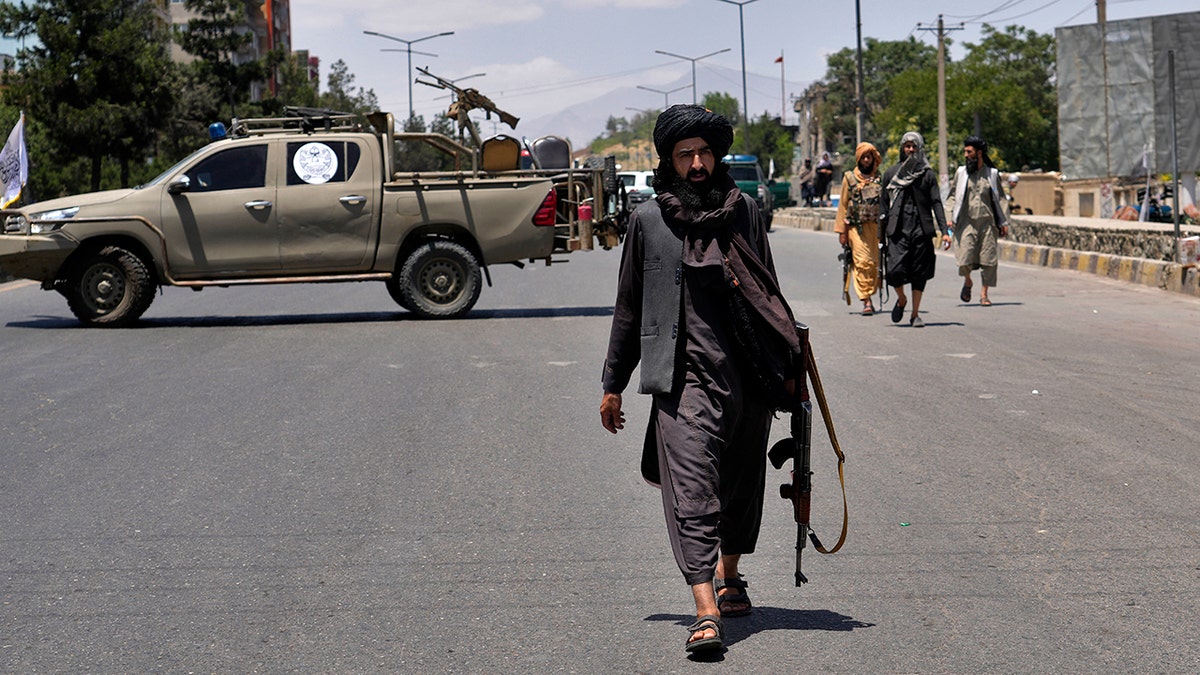
Taliban fighters guard the site of an explosion in Kabul, Afghanistan, June 18, 2022. (AP Photo/Ebrahim Noroozi)
In a democracy like ours, it is hard to sustain a consistent foreign and defense policy over a period of years without a clear victory. People are impatient and, in a democracy, that impatience is felt by elected leaders who may feel pressured to do something that they and their best military and intelligence advisers tell them could lead to disaster. That is the moment when our leaders are most tested to do what they believe is best for America and to remember that public opinion in a democracy can change, particularly if facts change.
CLICK HERE TO GET THE FOX NEWS APP
In the case of Afghanistan, a majority of Americans said they favored a withdrawal before it was ordered. Afterward, a majority thought it was a mistake and blamed President Biden for it.
Elise Labott recently wrote in Politico that the Afghan exit "marks the moment (Biden’s) presidency started to spiral out of control" and the number of Americans who felt he was doing a good job plummeted. That is a difficult but important story for our leaders and our people to think about and learn from in this unstable world in the years ahead.








































